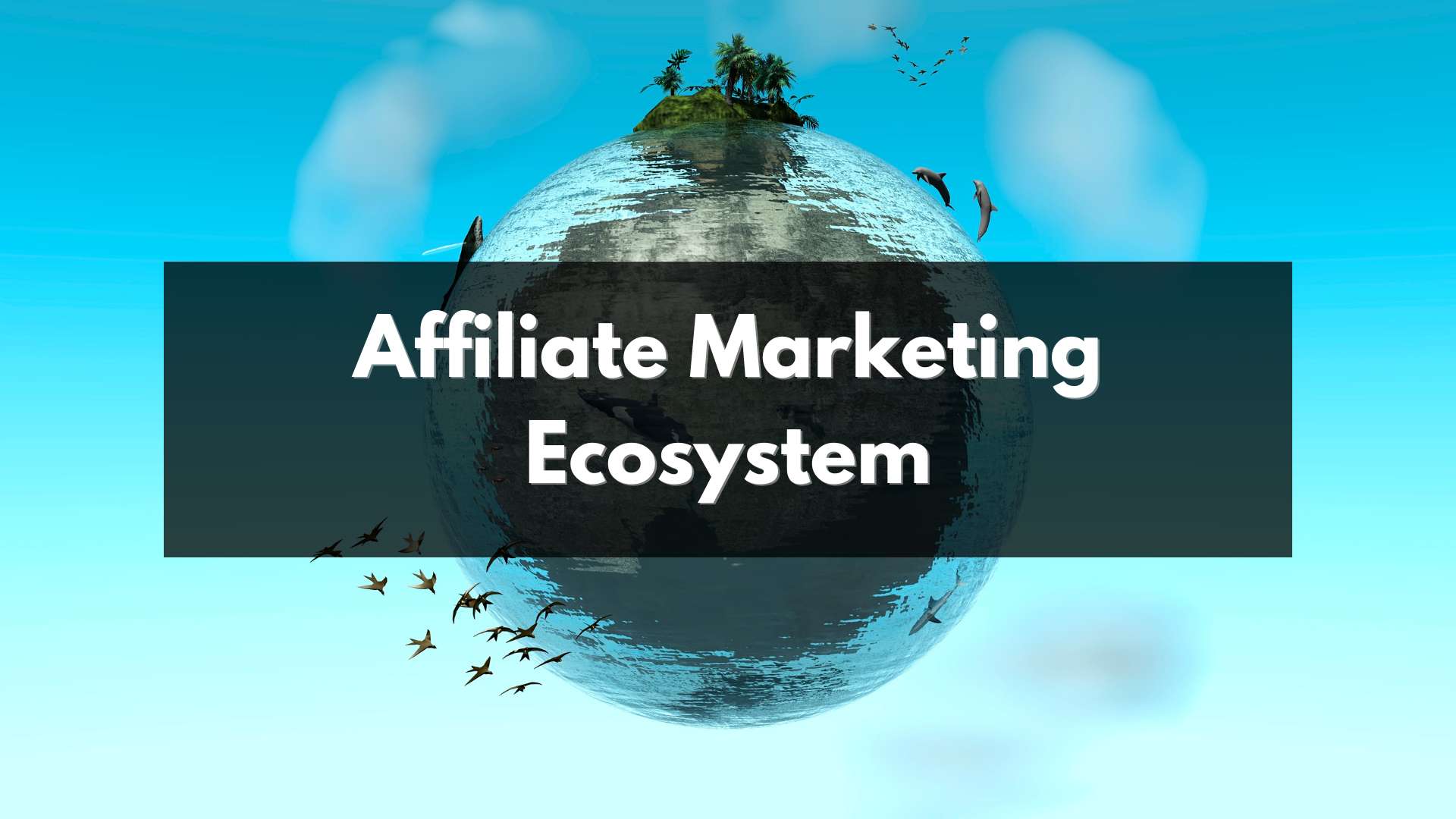The Affiliate Marketing Ecosystem
Affiliate marketing has grown into a highly competitive industry, with more and more companies looking for ways to increase their online presence and sales.
As the competition grows, it has become increasingly important to understand and harness the power of the entire affiliate marketing ecosystem.
In this article, we will explore the concept of affiliate ecosystem marketing, its key components, and how to build a successful affiliate ecosystem for your business.
Definition of Affiliate Marketing
Affiliate marketing is a performance-based online marketing model where a company (the advertiser or merchant) pays a commission to an external website or individual (the affiliate or publisher) for driving sales, leads, or other actions through their marketing efforts.
This is typically achieved by the affiliate promoting the advertiser’s products or services through various online channels, such as blogs, social media, email, and search engines.
The Importance of a Healthy Ecosystem in Affiliate Marketing
The success of an affiliate marketing program depends on the effective collaboration of various entities and factors that form an ecosystem.
By understanding the ecosystem and how its components interact, businesses can optimize their affiliate marketing strategy, expand their reach, and ultimately achieve better results.
Components of an Affiliate Marketing Ecosystem
An affiliate ecosystem comprises multiple players, each with specific roles and responsibilities. These include:
- Advertisers/Merchants: These are the companies or individuals that offer products or services for affiliates to promote. They set up affiliate programs, define commission structures, and provide marketing materials to the affiliates.
- Affiliate/Publisher: Affiliates are the partners who promote the advertiser’s products or services on their websites, blogs, or other online platforms. They earn a commission for each successful sale, lead, or action they generate.
- Affiliate Networks: These platforms act as intermediaries between advertisers and affiliates, providing tools and resources to manage and track campaigns. They handle the tracking, reporting, and payment processes, ensuring that both parties are fairly compensated for their efforts.
- Customers: The end-users who interact with the affiliate content and eventually purchase the product or service being promoted. Their preferences and behaviors directly impact the success of the affiliate marketing campaign.
- Supporting Tools and Services: These include tracking and analytics tools, content management systems, and various software and services that help optimize and streamline the affiliate marketing process.
Building a Successful Affiliate Ecosystem
To create a thriving affiliate ecosystem, consider the following steps:
- Choosing the Right Niche: Select a niche that aligns with your business goals, target audience, and market trends. It’s essential to find a balance between a profitable niche and one that you are passionate about, as this will help drive long-term success.
- Developing a Solid Strategy: Outline clear objectives and develop a comprehensive marketing plan that includes promotional tactics, target audience identification, and KPIs (Key Performance Indicators). Consistent evaluation and adjustment of your strategy are crucial to staying ahead of the competition.
- Establishing Strong Relationships: Build and maintain solid relationships with your affiliates, networks, and other partners in the ecosystem. Open communication, trust, and support are critical in fostering long-lasting partnerships that yield mutual benefits.
- Optimizing for SEO: Implement effective SEO (Search Engine Optimization) practices to improve your organic search rankings and visibility. This includes optimizing content, building backlinks, and leveraging long-tail keywords to attract more targeted traffic.
- Monitoring and Analysis: Use tracking and analytics tools to monitor the performance of your affiliate campaigns. Analyze data to identify trends, opportunities, and areas for improvement. Regularly assess your affiliates’ performance and offer feedback to help them optimize their efforts.
Challenges in Affiliate Ecosystem Marketing
Despite its many advantages, affiliate ecosystem marketing comes with its share of challenges:
- Competition: The rapid growth of affiliate marketing has led to fierce competition among advertisers and affiliates alike. To stay ahead, you must differentiate yourself by offering unique products, compelling content, and exceptional customer experiences.
- Fraud and Compliance Issues: The affiliate marketing industry is no stranger to fraudulent activities, such as click fraud and cookie stuffing. It’s essential to establish strict compliance guidelines, monitor your partners’ activities, and use advanced tools to detect and prevent fraud.
- Maintaining Quality: As your affiliate ecosystem expands, maintaining the quality of your content and partnerships becomes increasingly challenging. Regularly review your affiliates’ performance and ensure they adhere to your quality standards.
Conclusion
The future of affiliate ecosystem marketing looks promising as businesses continue to recognize its potential for growth and revenue generation.
By understanding the various components of the ecosystem, developing a robust strategy, and overcoming challenges, you can create a thriving affiliate marketing program that drives results for your business.
FAQs
What is an affiliate ecosystem?
An affiliate ecosystem is the interconnected network of advertisers, affiliates, networks, customers, and supporting tools and services that work together in the affiliate marketing process.
Why is understanding the affiliate ecosystem important?
Understanding the affiliate ecosystem is crucial for optimizing your affiliate marketing strategy, expanding your reach, and achieving better results.
What are the key components of an affiliate ecosystem?
The key components of an affiliate ecosystem include advertisers, affiliates, networks, customers, and supporting tools and services.
How can I build a successful affiliate ecosystem?
You can build a successful affiliate ecosystem by choosing the right niche, developing a solid strategy, establishing strong relationships, optimizing for SEO, and regularly monitoring and analyzing performance.
What are the main challenges in affiliate ecosystem marketing?
The main challenges in affiliate ecosystem marketing include competition, fraud and compliance issues, and maintaining quality.






